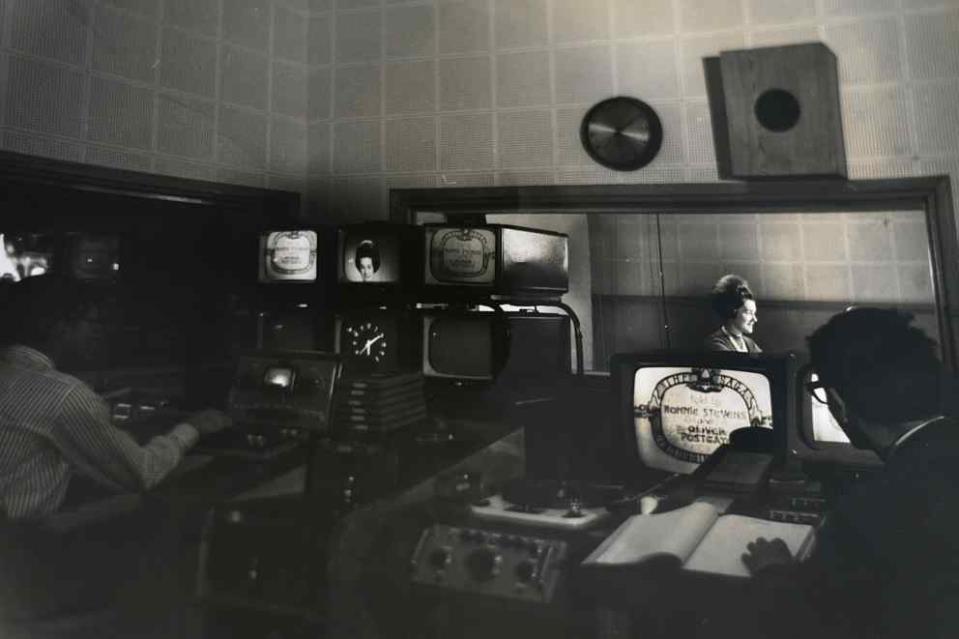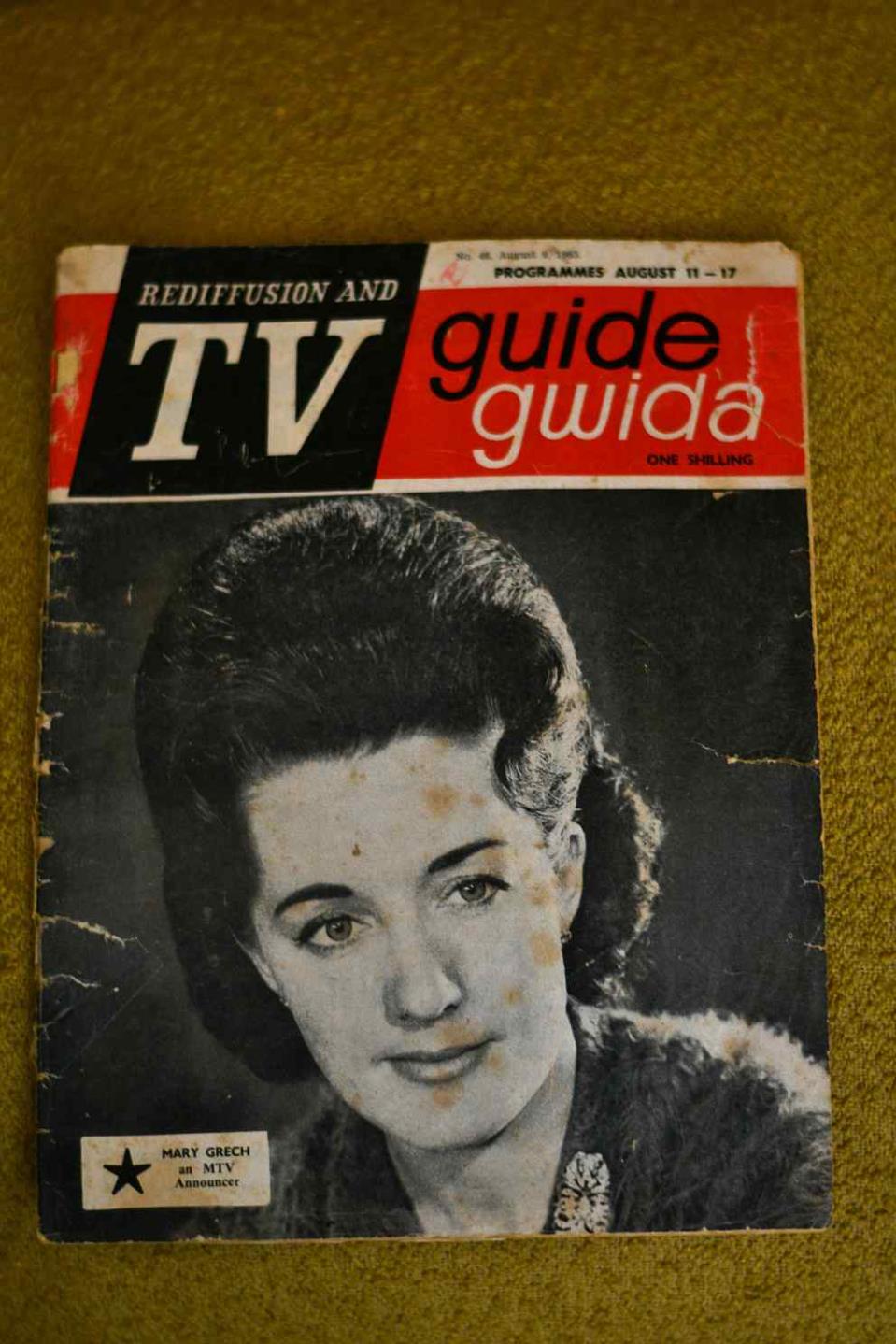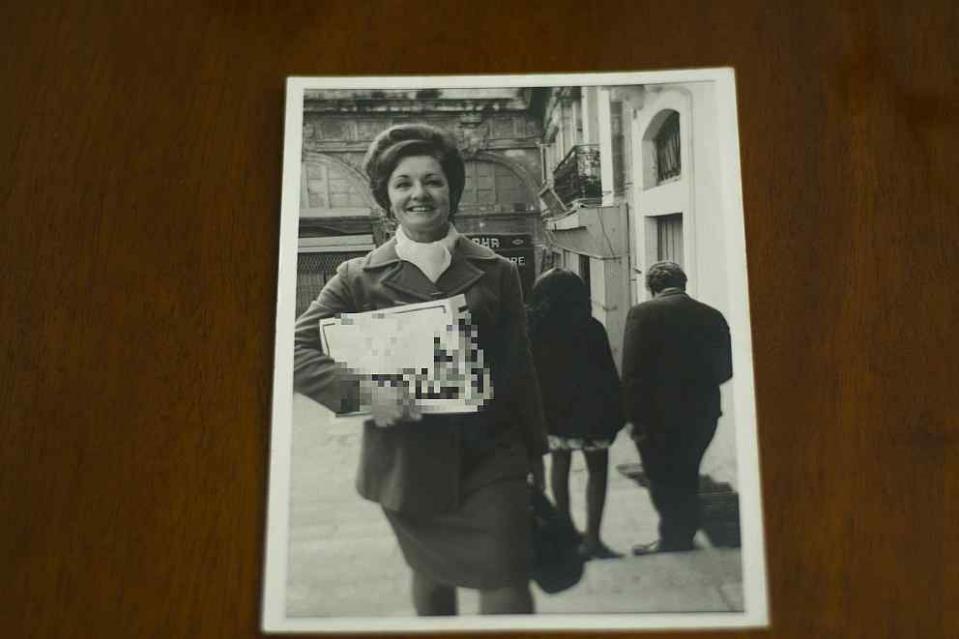Local television has improved greatly in technological and technical terms but many of today’s presenters lack the training and discipline of older generations, veteran TV presenter and newscaster Mary Grech believes. “We had a much stronger foundation back then.”
Mrs Grech was one of a few presenters on Malta Television (MTV) when it first started broadcasting in 1962. But she received rigorous training in the six months prior to the start of broadcasting.
“First there was a six-month selection process. 2,000 people applied but only I and Charles Abela Mizzi were chosen. The team also comprised of Charles Arrigo and Joan Borg Cardona, who were experienced on the rediffusion.
“Initially I’d had no interest in applying – I had only been married for a few months - but my husband, Victor, said there was nothing to lose.” Mrs Grech was involved in radio plays back then and her microphone experienced helped. So did her fluency in English and the slight accident she had picked up during a two-year stint in Canada. “It served me well because we used to do announcements in both Maltese and English. I remember, in later years, when I announced the departure ceremony of Queen Elizabeth II in both languages.”

After the selection process came months of training. “The foundation of television was laid well before the actual start of broadcasts, through rigorous preparations and auditions. They had even brought over people from the BBC to train us. Some of us were sent to train abroad. That is the difference. I doubt this happens nowadays. We were not only trained but also disciplined.”
Mrs Grech would present programmes and read the news and the Parliament report. “We were sort Jacks of all trades back then. I would start in the morning by announcing the day’s schedule, and then read the news and in the evening. The last news bulletin would be followed by the Parliament report. It would easily take an hour.”
Children’s programmes were among Mr Grech’s favourites but the same cannot be said for sports programmes. “We also had what was called the ‘Shopping Basket,’ which was a segment where we would advertise a number of products. Once I had more than 13 products. The thing was that if I made a mistake we had to start all over again because at the time we did not have editing machines.”

Mary Grech also presented what is today called the Malta Eurovision Song Contest. “From a visual point of view it has changed greatly but essentially it was still a contest where the singer that would represent Malta at the Eurovision was chosen. Today’s version is much more sophisticated.”
She reminisces about the time she presented the contest when she was three months pregnant with her daughter and no one noticed. “Well, no one but Carmen Azzopardi, who was worried about me continuously stepping on and off the stage.”
News and announcing was done live. “We also announced the start of studio programmes. Everything was live and God forbid if you made a mistake. I remember one time I went completely blank but experience teaches you how to carry yourself in such situations. When you blank out on television every second is an eternity. Luckily I used to write down my announcements so that saved me.”
Mrs Grech remembers one particular slip-up when announcing a gardening programme by Peter Calamatta. “I introduced him as Peter Calamattra,” she chuckles.

Apart from television Mrs Grech would also read announcements on the radio. “I would stay until 11.30pm or midnight to close the TV broadcast for the day and be back in the office at 6am the following morning on the radio.”
After almost 18 years working at MTV Mrs Grech felt it was time to move on. “When the time came to say goodbye, Charles Abela Mizzi, who was Head of Programmes, did not want to accept my resignation. I cried for weeks because that job was my life.”
But Mrs Grech was to return to the television screens in the 1990s, as part of the cast of the massively popular Ipokriti. “I still believe it is one of the most sophisticated and elegant tele serials. The sets, the lighting, the photography - it had it all. I remember I was told once that the streets of Victoria in Gozo would be completely empty when Ipokriti was on.”

She says the first two seasons, written by Lino Grech, were much classier. The writing changed drastically for the third season when the themes of infidelity crept in and certain language started being used. “Popularity went down. Viewers could not accept the change. We are still a bit conservative in this country.”
She acknowledges that tele serials nowadays have become more realistic in that they portray real life situations, like drugs, infidelity, separations. “It does not bother me because, at the end of the day, this is reality. What I judge is the level of acting.”
The level of certain TV newscasters is appalling, she says. “Some newscasters do not even know how to read place names. All they need is some preparation before going on air. This happens on all stations. Nowadays it’s about who you know. Some people are just given a microphone and put on the air.”

Mrs Grech says that Maltese television has advanced greatly from a technical aspect. But as a keen follower of news and current affairs she feels that the culture of sensationalism has set in. “Mind you, this happens abroad as well. I have followed the US Presidential campaign and realised how biased the American media can be.”
She does not like the recent trend of covering the funerals of accident victims. “That is something very personal and is not a news item in my opinion. Are we doing it because these stories sell more newspapers and get more viewers and clicks? Journalism is one of the most beautiful jobs there are. But how many real journalists do we have in Malta? When I see someone harassing another person with a microphone I ask myself; is that journalism?”

The policy of giving viewers what viewers want is not the way to go she says, referring to certain talk shows. “Just look at the quality of viewers that they attract. I also don’t agree with the way politicians are subjected to that kind of heckling by the audience. All that remains is for the audience to throw tomatoes at the guests. It has become a farce. I have been invited many times but I refuse to take part in such programmes.”
Mrs Grech is currently not involved in TV and does not even accept invitations to appear as guest speaker. But would she return to the screen, we asked. “If I was asked to do a 30-minute programme on the radio I would accept there and then. Radio is so satisfying. Television is just an attractive job, even if some presenters really put their heart into it. Radio is different – you are multitasking and keeping in contact with the listeners at the same time.”

What if she was asked to return for a fourth season of Ipokriti? “What, in my old age? I’m 79,” she jokes.
Mrs Grech still reminisces about her old television days but has acknowledged that that period of her life is over. “When there was the 50-year anniversary of TVM I was invited to the ceremony. We went round the building and saw the studios and all the memories of people like Charles Arrigo and Charles Abela Mizzi, who were my rocks. I felt a tremendous nostalgia going back to that place we had given birth to. That visit took me back all those years. But it stopped there.”
Pictures: Jonathan Borg/Mary Grech